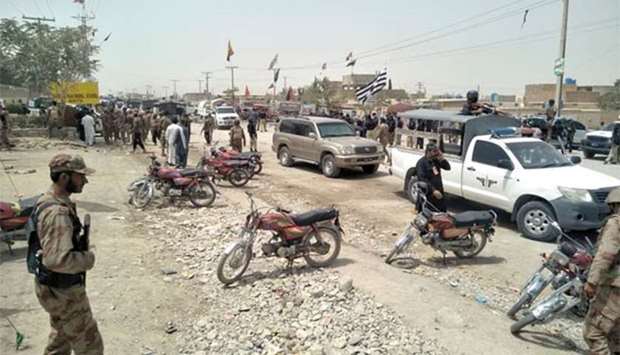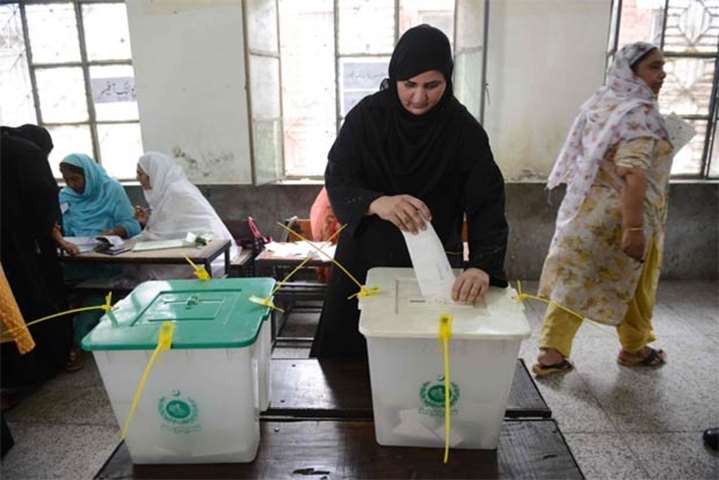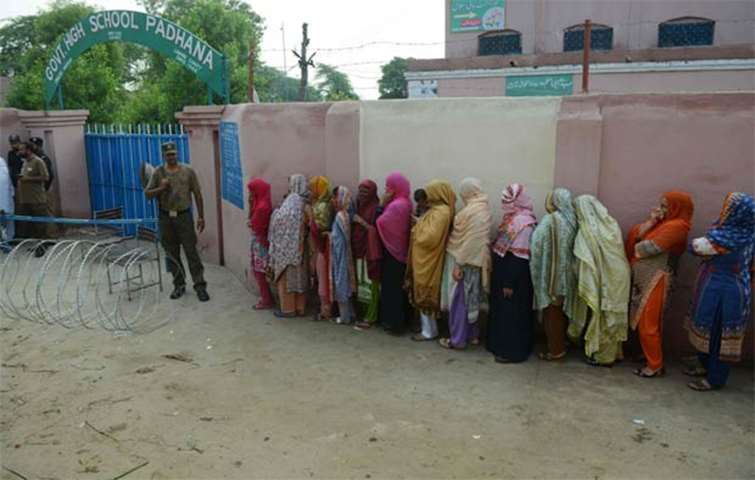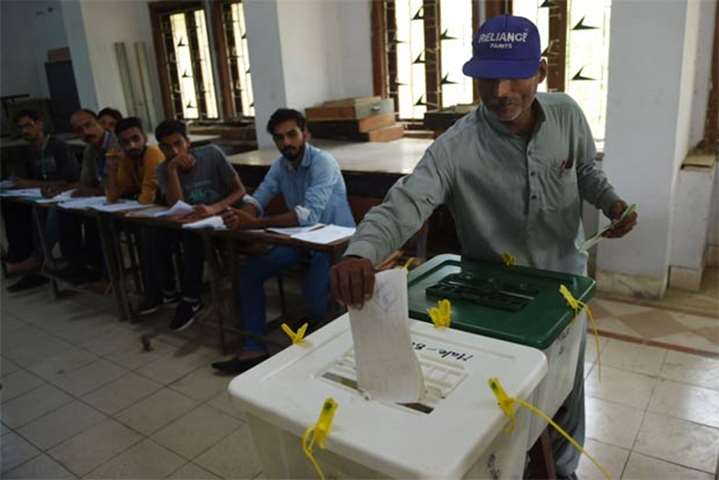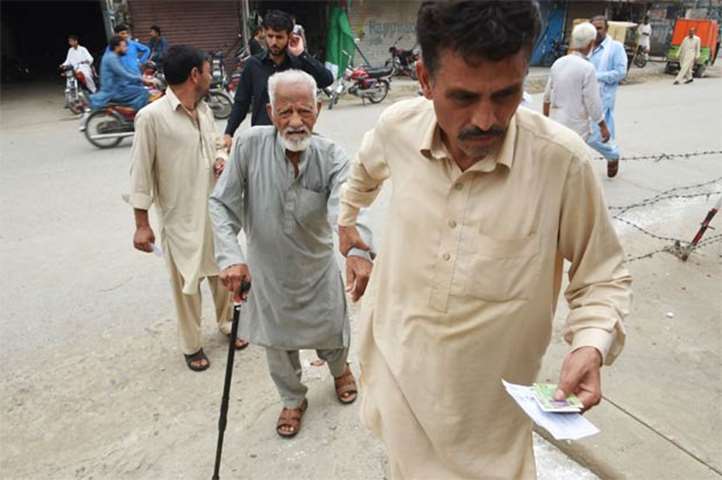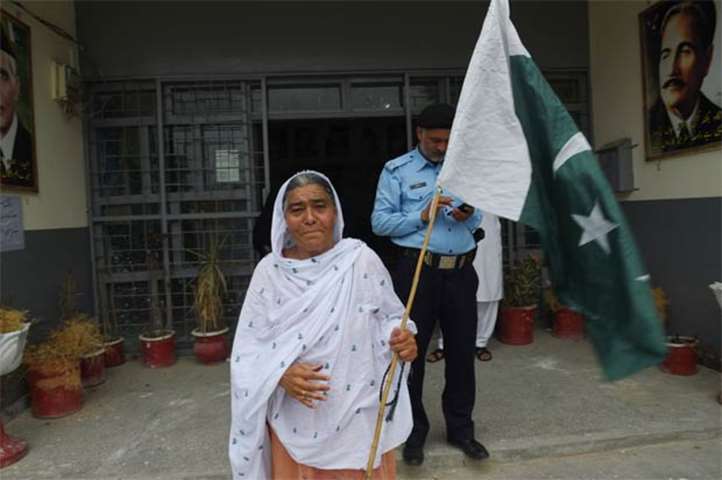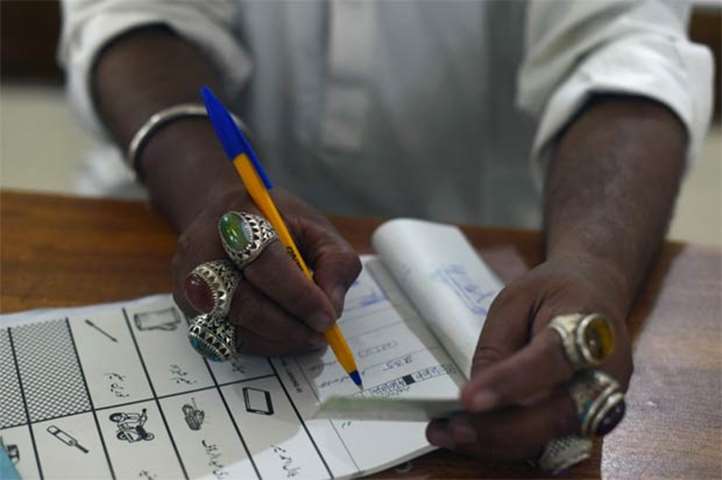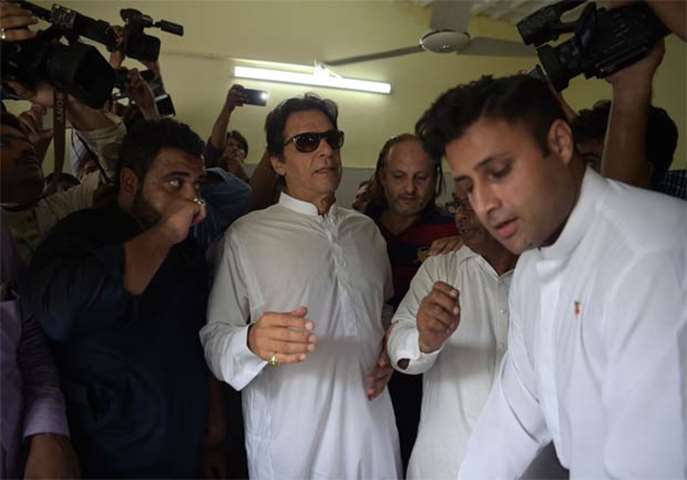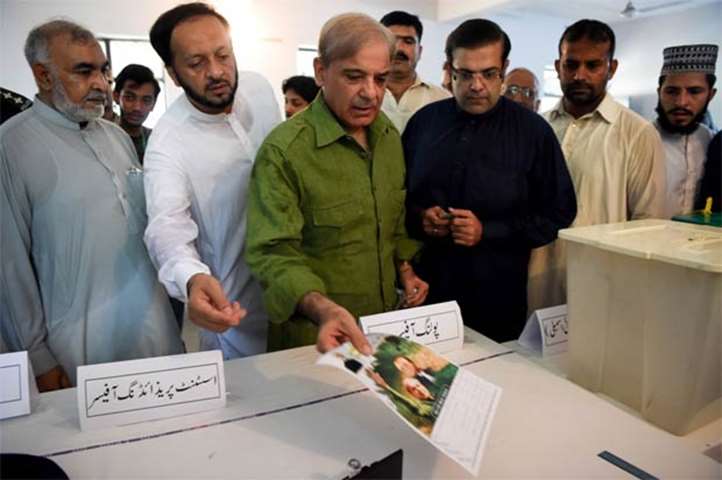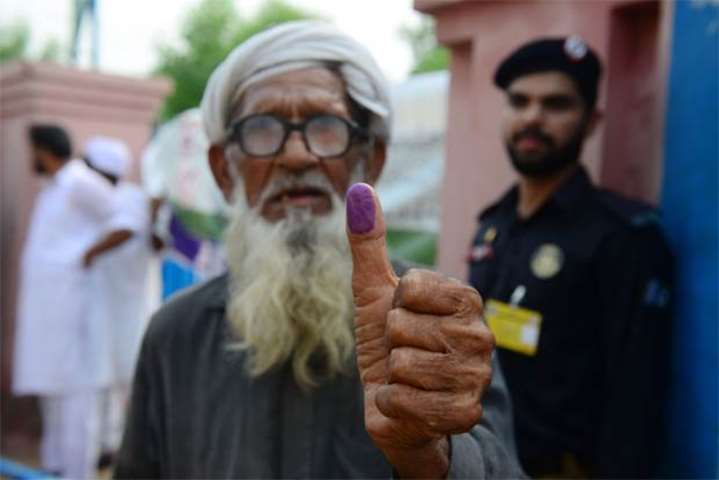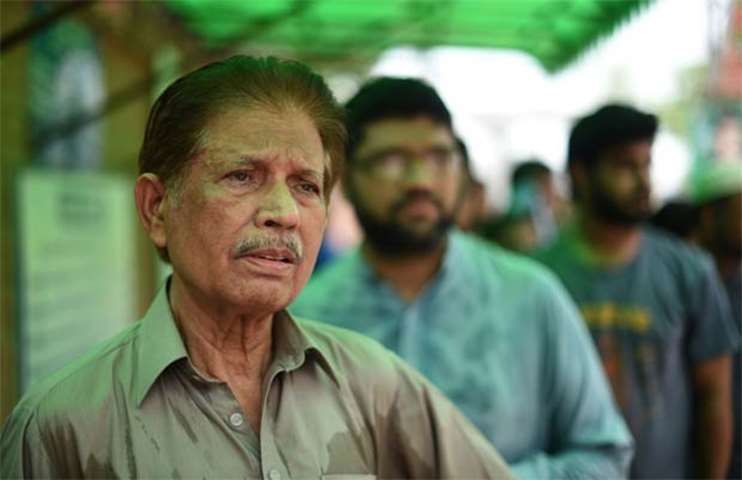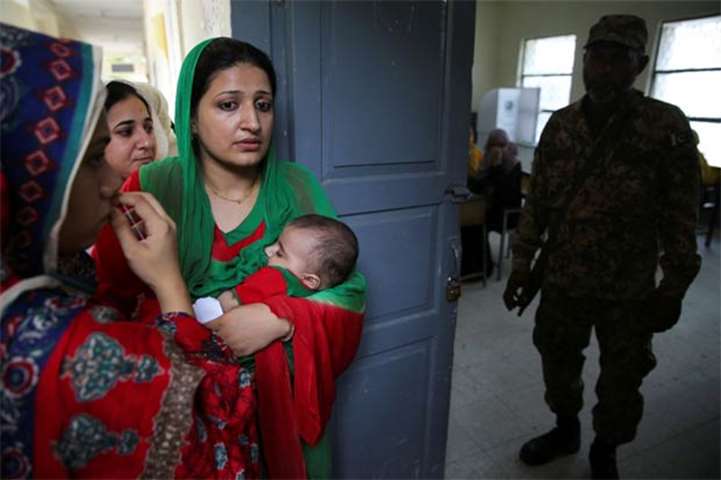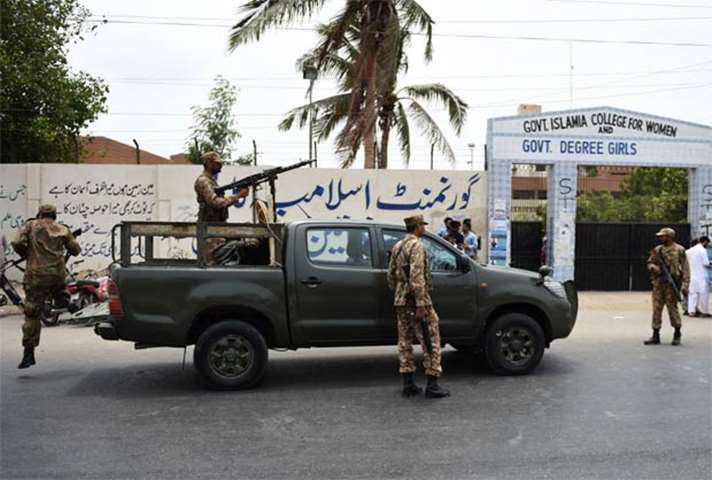At least 30 people were killed and dozens injured in a suicide bomb attack on a polling station as millions of Pakistanis voted in a nationwide election on Wednesday.
"(The bomber) was trying to enter the polling station. When police tried to stop him he blew himself up," a local administration official in the southwestern city of Quetta, Hashim Ghilzai, told AFP.
The province suffered the brunt of a series of attacks that killed more than 180 people across Pakistan during the brief but acrimonious election campaign, including a blast in Mastung district also claimed by IS which killed 153 people including local politician Siraj Raisani. "(The bomber) was trying to enter the polling station. When police tried to stop him he blew himself up," a local administration official in the southwestern city of Quetta, Hashim Ghilzai, told AFP.
Dr Wasim Baig, spokesman for the Sandeman Provincial Hospital in Quetta, said the death toll had risen to 30 after two people died of their injuries. Earlier, officials had said 28 people were killed and more than 30 injured.
The attack was claimed by the Islamic State group through its official Amaq news agency. It was IS's latest assault on Balochistan, Pakistan's restive province which struggles with multiple Islamist and separatist insurgencies.
He was one of three election candidates killed by militant attacks during the election campaign.
An earlier attack in the province on Wednesday left one policeman dead and three wounded when a hand grenade was thrown at a polling station in the village of Koshk, in Khuzdar district.
The military has stationed over 370,000 personnel across Pakistan to ensure security for the election, bolstered by an additional 450,000 police.
Reuters adds: Pakistanis voted on Wednesday in a knife-edge general election pitting cricket hero Imran Khan against the party of jailed ex-Prime Minister Nawaz Sharif.
According to the latest opinion polls, neither Khan nor Sharif are likely to win a clear majority in the election.

Cricket star-turned-politician Imran Khan, chairman of Pakistan Tehreek-e-Insaf (PTI), speaks to the media after casting his vote in Islamabad.
Khan has emerged as a slight favourite in national opinion polls, but the divisive race is likely to come down to Punjab, the country's most populous province, where Sharif's party has clung to its lead in recent surveys.
The election has been plagued by allegations the powerful armed forces have been trying to tilt the race in Khan's favour after falling out with the outgoing ruling party of Sharif, who was jailed on corruption charges this month.
"Imran Khan is the only hope to change destiny of our country. We are here to support him in his fight against corruption," said Tufail Aziz, 31, after casting his ballot in the north-western city of Peshawar.
About 106 million people are registered to vote in polls due to close at 6 pm. Results will start trickling in within hours, and the likely winner should be known by around 2 am on Thursday.
Whichever party wins, it will face a mounting and urgent in-tray, from a brewing economic crisis to worsening relations with on-off ally the United States to deepening cross-country water shortages.
An anti-corruption crusader, Khan has promised an "Islamic welfare state" and cast his populist campaign as a battle to topple a predatory political elite hindering development in the nation of 208 million people.
"We are pitched against mafias," Khan, 65, said in one of his last rallies in the coastal city of Karachi. "These are mafias who made money in this country and siphoned it abroad, burying this nation in debt".
Khan has staunchly denied allegations by Sharif's Pakistan Muslim League-Nawaz (PML-N) party that he is getting help from the military, which has ruled Pakistan for about half of its history and still sets key security and foreign policy in the nuclear-armed nation. The army has also dismissed allegations of meddling in the election.
Struggle to win
Khan's Pakistan Tehreek-e-Insaf (PTI) party has inched ahead of PML-N in recent national polls, but even if it gets the most votes, it will likely struggle to win a majority of the 272 elected seats in the National Assembly, raising the prospect of weeks of haggling to form a messy coalition government.
Such a delay could further imperil Pakistan's economy, with a looming currency crisis expected to force the new government to turn to the International Monetary Fund for Pakistan's second bailout since 2013. PTI has not ruled out seeking succour from China, Islamabad's closest ally.
Sharif's PML-N has sought to turn the vote into a referendum on Pakistan's democracy and campaigned to protect the "sanctity of the vote".
The Pakistan Peoples Party (PPP), which has been overtaken by Khan's PTI as the main challenger to PML-N but is widely seen as the likely kingmaker, has also alleged intimidation by spy agencies.
Sharif's PML-N has been touting its delivery of mega infrastructure projects, especially roads and power stations that helped hugely reduce electricity blackouts, as proof the country is on the path to prosperity.
"If we get the opportunity, we will change the destiny of Pakistan," said Shehbaz Sharif, brother of Nawaz and the PML-N president, as he cast his vote in Lahore. "We will bring an end to unemployment, eradicate poverty and promote education".
PML-N's lacklustre campaign was reinvigorated by the return to Pakistan of party founder Nawaz Sharif, 68, who was earlier this month convicted and sentenced in absentia to 10 years in prison over the purchase of upscale London apartments using offshore companies in the mid 1990s. He has denied any wrongdoing.
The three-time prime minister has called the legal cases against his family a politically motivated conspiracy by elements of the army and judicial establishment.
The election will be only the second civilian transfer of power in Pakistan's history.
PTI leader Khan has in recent years shed his playboy image and adopted a more pious and conservative persona. He has vowed to create 10 million jobs if he comes to power and promised to build "world class" schools and hospitals.
"My vote and my heart are both with Imran Khan," said Peshawar university student Naveed Ashraf, 24, who wants Khan to improve the quality of education and reduce school and college fees.
Khan has ruled out a coalition with PPP, saying he would not be able to implement change with corrupt "status quo" parties.
Without PPP, he would likely need support from independent candidates widely seen as a military proxy bloc, or candidates from small, ultra-religious parties, some of which have been linked with militant groups.

